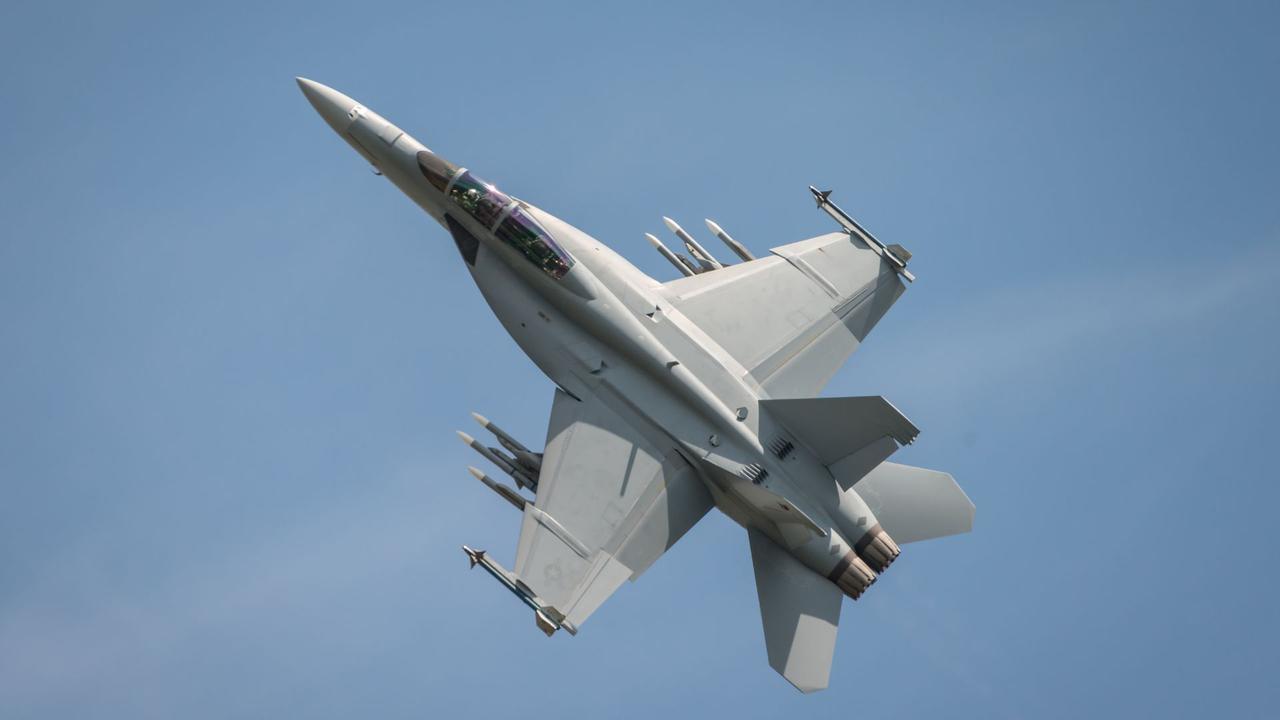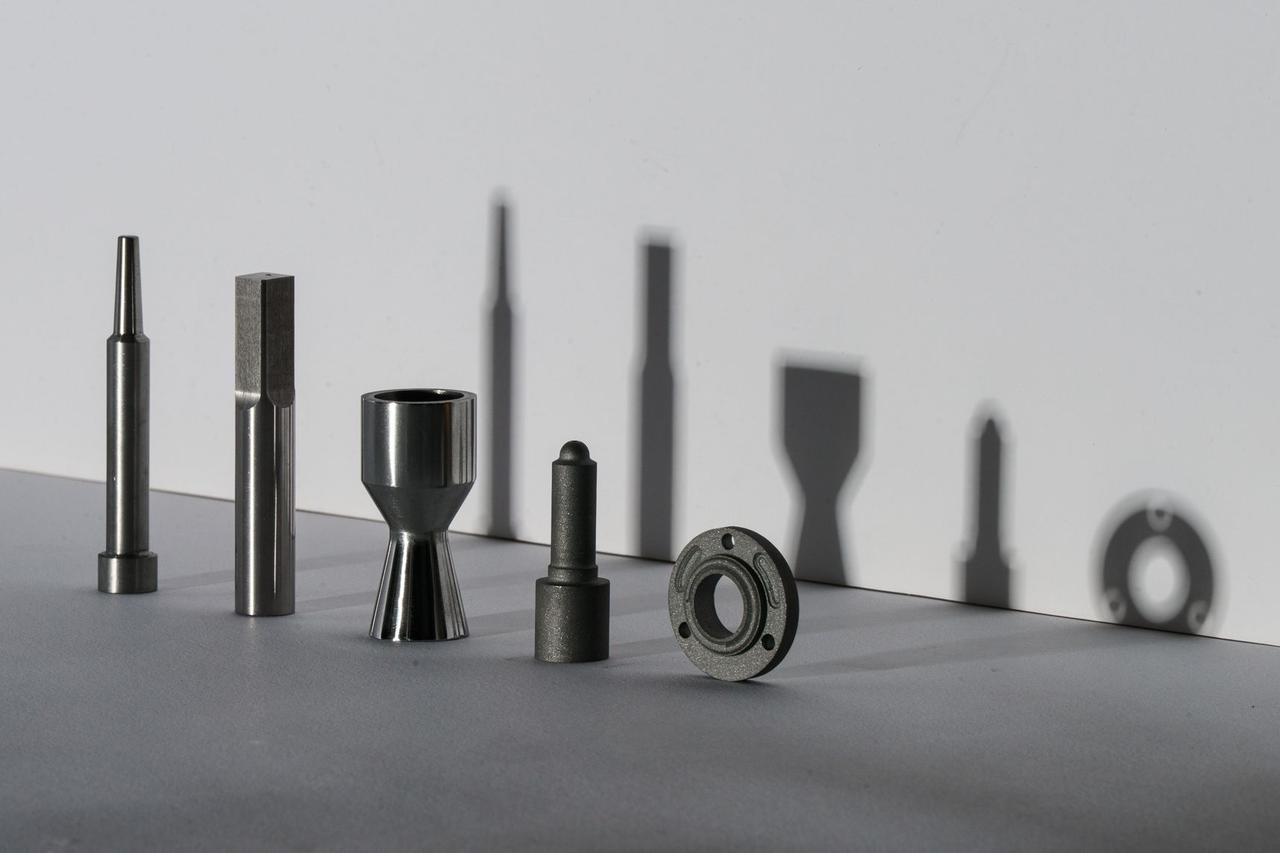MIT-Led Team Develops AI-Powered Design Tools for Next-Gen Aerospace Components
2 Sources
2 Sources
[1]
Artificial intelligence meets "blisk" in new DARPA-funded collaboration
Caption: A student in Zack Cordero's Aerospace Materials and Structures Lab works with cutting-edge additive manufacturing equipment. A recent award from the U.S. Defense Advanced Research Projects Agency (DARPA) brings together researchers from Massachusetts Institute of Technology (MIT), Carnegie Mellon University (CMU), and Lehigh University (Lehigh) under the Multiobjective Engineering and Testing of Alloy Structures (METALS) program. The team will research novel design tools for the simultaneous optimization of shape and compositional gradients in multi-material structures that complement new high-throughput materials testing techniques, with particular attention paid to the bladed disk (blisk) geometry commonly found in turbomachinery (including jet and rocket engines) as an exemplary challenge problem. "This project could have important implications across a wide range of aerospace technologies. Insights from this work may enable more reliable, reusable, rocket engines that will power the next generation of heavy-lift launch vehicles," says Zachary Cordero, the Esther and Harold E. Edgerton Associate Professor in the MIT Department of Aeronautics and Astronautics (AeroAstro) and the project's lead principal investigator. "This project merges classical mechanics analyses with cutting-edge generative AI design technologies to unlock the plastic reserve of compositionally graded alloys allowing safe operation in previously inaccessible conditions." Different locations in blisks require different thermomechanical properties and performance, such as resistance to creep, low cycle fatigue, high strength, etc. Large scale production also necessitates consideration of cost and sustainability metrics such as sourcing and recycling of alloys in the design. "Currently, with standard manufacturing and design procedures, one must come up with a single magical material, composition, and processing parameters to meet 'one part-one material' constraints," says Cordero. "Desired properties are also often mutually exclusive prompting inefficient design tradeoffs and compromises." Although a one-material approach may be optimal for a singular location in a component, it may leave other locations exposed to failure or may require a critical material to be carried throughout an entire part when it may only be needed in a specific location. With the rapid advancement of additive manufacturing processes that are enabling voxel-based composition and property control, the team sees unique opportunities for leap-ahead performance in structural components are now possible. Cordero's collaborators include Zoltan Spakovszky, the T. Wilson (1953) Professor in Aeronautics in AeroAstro; A. John Hart, the Class of 1922 Professor and head of the Department of Mechanical Engineering; Faez Ahmed, ABS Career Development Assistant Professor of mechanical engineering at MIT; S. Mohadeseh Taheri-Mousavi, assistant professor of materials science and engineering at CMU; and Natasha Vermaak, associate professor of mechanical engineering and mechanics at Lehigh. The team's expertise spans hybrid integrated computational material engineering and machine-learning-based material and process design, precision instrumentation, metrology, topology optimization, deep generative modeling, additive manufacturing, materials characterization, thermostructural analysis, and turbomachinery. "It is especially rewarding to work with the graduate students and postdoctoral researchers collaborating on the METALS project, spanning from developing new computational approaches to building test rigs operating under extreme conditions," says Hart. "It is a truly unique opportunity to build breakthrough capabilities that could underlie propulsion systems of the future, leveraging digital design and manufacturing technologies." This research is funded by DARPA under contract HR00112420303. The views, opinions, and/or findings expressed are those of the author and should not be interpreted as representing the official views or policies of the Department of Defense or the U.S. government and no official endorsement should be inferred.
[2]
MIT to lead AI tool development for next-gen aerospace components
This represents a significant leap forward in the design and performance of aerospace components. A team of researchers from MIT, Carnegie Mellon University, and Lehigh University has received an award from the Defense Advanced Research Projects Agency (DARPA) to revolutionize the design of aerospace components. The project is part of DARPA's Multiobjective Engineering and Testing of Alloy Structures (METALS) program. The focus of their research is on creating advanced design tools powered by artificial intelligence (AI). These tools aim to improve both the shape and material choices for complex aerospace structures.
Share
Share
Copy Link
Researchers from MIT, Carnegie Mellon, and Lehigh University have received DARPA funding to create AI-driven design tools for optimizing shape and material composition in aerospace structures, with a focus on improving rocket engine components.

DARPA Funds AI-Driven Aerospace Innovation
The U.S. Defense Advanced Research Projects Agency (DARPA) has awarded funding to a collaborative research team from Massachusetts Institute of Technology (MIT), Carnegie Mellon University (CMU), and Lehigh University under the Multiobjective Engineering and Testing of Alloy Structures (METALS) program. This initiative aims to develop cutting-edge design tools that leverage artificial intelligence for the optimization of aerospace components
1
2
.AI-Powered Design for Aerospace Advancements
The research focuses on creating novel design tools that simultaneously optimize shape and compositional gradients in multi-material structures. These tools will complement new high-throughput materials testing techniques, with a particular emphasis on the bladed disk (blisk) geometry commonly found in turbomachinery, including jet and rocket engines
1
.Zachary Cordero, the project's lead principal investigator from MIT, highlights the potential impact: "This project could have important implications across a wide range of aerospace technologies. Insights from this work may enable more reliable, reusable rocket engines that will power the next generation of heavy-lift launch vehicles"
1
.Overcoming Design Challenges with AI
The research addresses a critical challenge in aerospace component design. Currently, engineers must develop a single material composition and set of processing parameters to meet "one part-one material" constraints. This approach often leads to inefficient design trade-offs and compromises, as desired properties can be mutually exclusive
1
.The team's approach leverages recent advancements in additive manufacturing processes that enable voxel-based composition and property control. By combining classical mechanics analyses with cutting-edge generative AI design technologies, the researchers aim to unlock new possibilities in material performance and component design
1
.Related Stories
Interdisciplinary Collaboration for Innovation
The project brings together experts from various fields, including:
- Hybrid integrated computational material engineering
- Machine learning-based material and process design
- Precision instrumentation and metrology
- Topology optimization
- Deep generative modeling
- Additive manufacturing
- Materials characterization
- Thermostructural analysis
- Turbomachinery
1
This interdisciplinary approach allows for a comprehensive exploration of the challenges and opportunities in aerospace component design.
Implications for Future Aerospace Technologies
The research has the potential to significantly impact the aerospace industry. By enabling more efficient and optimized designs, the project could lead to:
- Improved performance of rocket engines and other aerospace components
- Enhanced reliability and reusability of critical parts
- More sustainable and cost-effective manufacturing processes
- Advancements in materials science and engineering
1
2
A. John Hart, Professor and Head of the Department of Mechanical Engineering at MIT, emphasizes the project's unique opportunity: "It is a truly unique opportunity to build breakthrough capabilities that could underlie propulsion systems of the future, leveraging digital design and manufacturing technologies"
1
.As this DARPA-funded research progresses, it has the potential to revolutionize the design and performance of aerospace components, paving the way for the next generation of space exploration and aviation technologies.
References
Summarized by
Navi
[2]
Related Stories
AI Breakthrough Accelerates and Strengthens Titanium Alloy Production
08 Mar 2025•Science and Research

AI-Driven Discovery of High-Temperature Shape Memory Alloys Could Revolutionize Fighter Jet Efficiency
10 Jul 2025•Science and Research

MIT Spin-off Foundation Alloy Revolutionizes Metal Manufacturing with AI-Compatible Technology
03 Jul 2025•Technology

Recent Highlights
1
ByteDance's Seedance 2.0 AI video generator triggers copyright infringement battle with Hollywood
Policy and Regulation

2
Demis Hassabis predicts AGI in 5-8 years, sees new golden era transforming medicine and science
Technology

3
Nvidia and Meta forge massive chip deal as computing power demands reshape AI infrastructure
Technology





